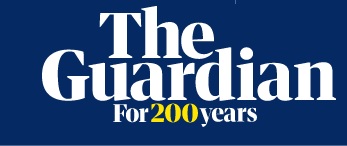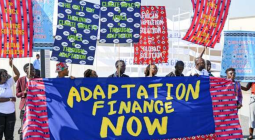Countries must set aside differences and agree climate finance deal, says Cop29 negotiator
Jochen Flasbarth called on Cop29 delegates to press on as world faces increasing crises and drop in solidarity
Governments meeting to forge a global settlement on climate finance must get over their differences this week and come to a deal – because if talks carry on until next year they stand little chance with Donald Trump in the White House, the German development secretary has said.
Jochen Flasbarth, one of the most influential figures at the UN Cop29 summit, said that if the final days of the summit did not produce a breakthrough countries would face a much tougher prospect.
“Postponing the decision here to Belém [the city in northern Brazil where next year’s UN climate summit will be held] is not something advisable,” he told the Guardian. “We have an increasing crisis in the world, war in the world, and countries disappearing from global solidarity like the US, and the departure of the Argentinian delegation. These are clear signals that we will get in difficult times.”
Two weeks of talks on climate finance are scheduled to end on Friday, with many developing countries frustrated at what they believed was a lack of progress in the first week of the Cop29 summit in Azerbaijain. Poorer countries want at least $1tn a year to help them cut greenhouse gas emissions and cope with the impacts of extreme weather.
Rich countries have not yet put a figure on how much they will be prepared to contribute. A study last week by leading economists suggested that about $500bn should come from the private sector, and about $250bn from multilateral development banks such as the World Bank.
The direct provision of grants and loans from developed to developing countries needs to roughly double, from about $40bn today, they found. However, higher income countries have not yet agreed to that.
The talks have also been beset by controversy over the influence of fossil fuel companies. Oil and gas make up 90% of Azerbaijan’s exports, and were described by the country’s president, Ilham Aliyev, in the opening ceremony as a “gift of God”. Fossil fuel lobbyists at Cop29 outnumber the delegations of the 10 most vulnerable countries, and have been given “red carpet” treatment. A group of senior voices on the climate, including a former UN secretary general, a former UN climate chief, and a former UN climate envoy, wrote to the UN last week calling for reforms to the process of Cops – which stands for “conference of the parties” under the 1992 UN framework convention on climate change.
Flasbarth is a respected figure on climate finance, having taken charge previously of the key issue of ensuring that developed countries met their previous target of providing $100bn a year for poorer countries, a target that was supposed to be met in 2020 but was finally met two years late.
Mohamed Adow, the director of the Power Shift Africa thinktank, said: “We need Flasbarth to be working with other developed country ministers to resolve the climate finance stalemate. The world expects a clear signal of the financing of climate action from Baku, and we can’t afford to fail in that task here in Baku because of the fear of a Trump presidency. It’s important we don’t just accept a bad deal here out of fear of the incoming Trump administration.”
Another sticking point for rich countries is ensuring that emerging economies with big carbon footprints, such as China – the world’s biggest emitter and second biggest economy – also contribute to providing help for the poorest.
China has made pledges to continue to provide “south-south” assistance to poorer countries, which Flasbarth said were “appreciated”. But he also called on the government in Beijing to account for such finances more clearly as it is impossible to evaluate them given how little information China publishes on its activities.
“We believe that this is the point in time to be more transparent about it,” he said. “We don’t have any doubts that they are doing something substantial, but it’s a black box, and there is a desire to better understand what they are doing.”
He said developed countries were already held to high standards on proving they were fulfilling their pledges. China would not need to meet the same standards, he indicated, but should provide more information, perhaps to an external body such as the UN. “There needs to be a neutral place where we are all reporting so that parties can understand what we are doing,” he said. “We are not making a black and white request, we can discuss it.”
“The G77 and China have always requested that the old developed countries should be very transparent about what we are paying, what parts are grants, what parts are loans, how do we count, to whom do we channel aid, what is on mitigation, what is on adaptation,” he said. “We are not requesting something unreasonable.”
Germany is in the midst of a political crisis as the chancellor, Olaf Scholz, faces the potential dissolution of his governing coalition. Flasbarth said he had “no doubt” that the next government, of whatever stripe, would continue to meet the country’s obligations on climate finance, and increase them in future. “I cannot imagine that the future administration would step away from that, or [from] increased commitments,” he said.
Flasbarth was upbeat on the talks, but others have spoken of “frustration” and a “vacuum”. He said: “I’m quite positive that we can reach an agreement here. We are building up something credible.”
He said a Cop focused on finance was always going to be difficult. “Some people are worried because this is economically an issue of distribution, and this is always not easy. But I see some positive signals.”
Cover photo: By The Guardian



